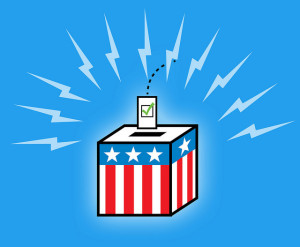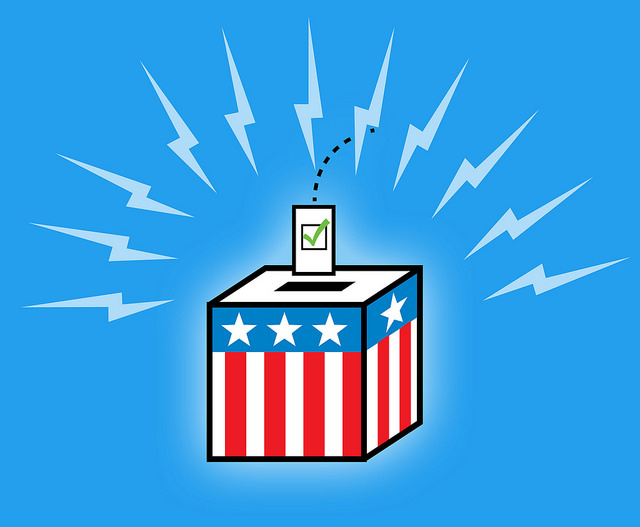>> Are you with her? Do you want to make America great again? Chances are those questions have been bombarding you every time you turn on your television, open your Internet browser, or scroll through your social media feed.
Are you with her? Do you want to make America great again? Chances are those questions have been bombarding you every time you turn on your television, open your Internet browser, or scroll through your social media feed.
The presidential election matters a great deal. But so do the “down ballot” local elections that many tend to overlook.
I’ve been there: standing in long lines at polling stations, shifting my weight from left to right as I flip the sample ballot over and over, trying to remember what each councilman, sheriff, state supreme court nominee, and house representative stand for, kicking myself for not being well-informed.
In the past, I may have given up and voted straight party, but since the 2012 elections, North Carolina joins 42 other states who have eliminated straight ticket voting. Pollsters will be watching to see whether this creates >> “down ballot fatigue” where more uncertainties arise the further down a ballot a person gets, resulting in more unmarked sections.
I’ve been a victim of that too. If it’s between making the wrong choice or no choice, I should abstain, right?
Or maybe I should take the time to better informed about my local elections. After all, it’s the local elections that will affect my day to day quality of life. For example, on >>my ballot , I will be asked not just to vote for the next team in the White House, but also people to represent my ideals in twenty-two other offices. Twenty-two! (You can view your sample ballot >>here .)
On a large scale, the >>senate race matters to NC because it can determine whether democrats can take over the Senate. We also have a our attorney general pitted against our governor. Love them or hate them, the stakes are too high not to pick one. And don’t forget the lieutenant governor race, with >>a democrat running against a republican incumbent.
Then, aside from the senators and congressman who will represent NC nationally, these are the judges who will decide the laws that keep me safe — or don’t. The >>county commissioners who spend my tax dollars (and decide how much taxes I pay) wisely — or don’t. These are the people that will make the decisions about the agriculture I eat, the water I drink, the schools my son will attend. I’ll also be asked to vote on four bonds for schools, community colleges, libraries, and museums.
So, if I want to continue living in a community I’m proud to call my home, one that fights inequality in justice, health, and education, then I need to vote. I can complain about my home — my family — only if I work to make it better. And I can do that by voting.
Jennifer Brick is a freelance writer and former teacher in Durham, North Carolina. She earned her Masters of Fine Arts in Creative Nonfiction from Goucher College. Follow her on Twitter @jenbrickwrites.

There are no comments
Add yours